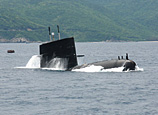
Key Words:U.S.;China;Diaoyu Island;Asia-Pacific;rebalancing;Barack Obama;
Related Reading:
>> Obama could build a legacy by boosting trust with China
>> U.S. sends wrong signal over Diaoyu Islands issue
>> US' dangerous stance
Obama should seek cooperation with China rather than trying to contain its rise by ganging up with smaller nations
The United States is facing a number of thorny diplomatic challenges at the start of President Barack Obama's second term. For example, stabilizing the situation in Afghanistan and Pakistan to enable a smooth withdrawal of US forces this year; stabilizing the situation in the Middle East, especially to placate Egypt and Israel, and achieve a smooth political change in Syria; managing the issues surrounding the nuclear programs of Iran and the Democratic People's Republic of Korea; and handling relations with emerging powers, including the stalled relations with Russia and the complex relations with China.
The US government has long been aware that nontraditional security threats are no longer the main threat facing the country. Although it faces a variety of nontraditional security threats by non-state actors, they cannot undermine the US' role as the world's policeman. Only state actors can become the main force pushing forward power transition in the international community. So Washington's focus will return to state-to-state relations, particularly those in the Western Pacific region.
In fact, across the world arena at present it seems only the relationship with China will be able to affect the US' global supremacy.
China's rapid development in the past decade and its development potential for the coming 10 to 20 years made the US National Intelligence Council reach a judgment that the US will no longer be the world's only superpower by 2030. With stable growth, the size of China's economy will surpass that of the US by then, although its per capita level of development will remain far behind the US. For China, with its huge population and territorial resources, its comprehensive competitiveness at that time will see significant enhancement.
The intention of the US' return to Asia is to contain China's rise. However, to realize rebalancing to the Asia-Pacific is beyond the US' capabilities.
The uncertainties in other parts of the world, for example the regional turmoil that has erupted in the Middle East since 2011, will delay the US' redistribution of its security resources to the Asia-Pacific region, and Washington's long-term serious fiscal imbalances will further handicap its efforts to achieve a strategic rebalancing.

















 Beijing fantasy emerges in dense fog
Beijing fantasy emerges in dense fog


![]()
